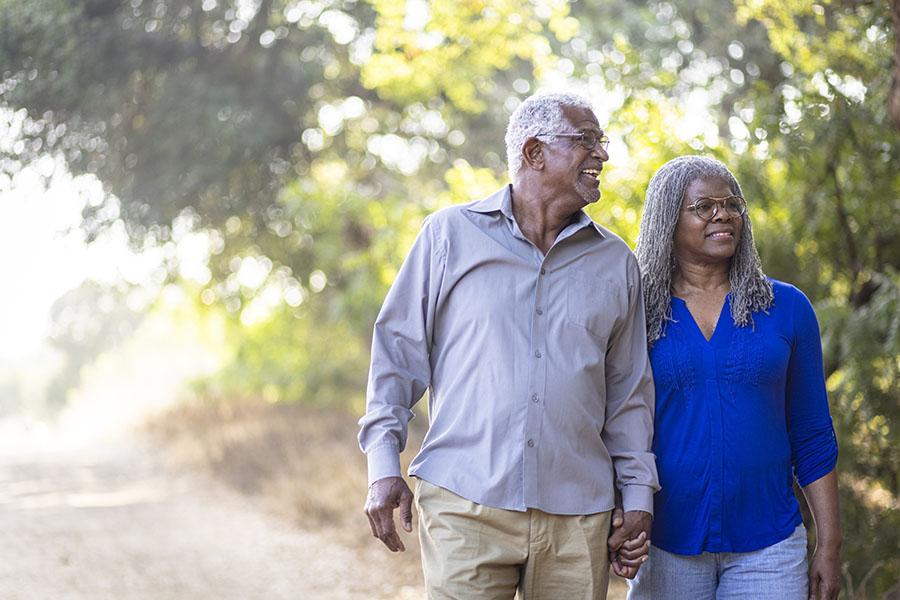At age 40, Pat was diagnosed with liver failure. Fatty liver disease quickly progressed to nonalcoholic steatohepatitis and alcohol-related cirrhosis (liver scarring).
Because of the rapid progression of his liver disease, Pat’s medical providers placed him on the national transplant waiting list.
At one point, a donor's liver became available, but the organ failed even before it could be transplanted. As his wait continued and his health worsened, Pat used alcohol and was removed from his transplant program.
At many medical centers, patients must abstain from alcohol for at least six months before being placed on the transplant list. But Pat knew that he wouldn’t survive that six-month wait.
That’s when he found the Liver Transplant Program at Temple. “The beauty of Temple is how they said, ‘We’ll give him a shot,’” Pat says. “They listen to you as a patient instead of a number.”
The multidisciplinary team at Temple has experience in evaluating and treating patients with advanced liver disease. They offer comprehensive care and support before and after a liver transplant, and they evaluate each patient as an individual, regardless of past alcohol use.
Starting over at Temple
Pat met with transplant surgeon Antonio Di Carlo, MD, at Temple University Hospital to find out if he was a candidate for a liver transplant. Dr. Di Carlo is the Chief of Abdominal Organ Transplant Surgery at Temple. Much to Pat’s relief, Dr. Di Carlo recognized Pat’s commitment to change and determined that Pat could be a candidate for the transplant program.
“They saw my support system and my family,” Pat says. “They said, ‘We’re going to give you a chance.’ They opened the door for me — that’s what Temple did. They saw me as a human and as a patient. They told me, ‘We’re going to work with you, but for you to be here, you must commit to abstain from alcohol after the transplant.’ It was eye-opening, and it was the push that I needed.”
Pat had plenty of support from his family and friends. But he also received much-needed emotional, practical, and clinical support from his Temple transplant nurses. “When you’re stressing out, they’re there for you,” he says. “They make you feel like family.”
Pat had to be hospitalized as his liver failure worsened. He was in a hospital bed at Temple when he and his wife, Megan, learned that a donor's liver had become available. Pat had liver transplant surgery the following day, Oct. 30, 2019, his late father’s birthday.
“Can you imagine the gift of redemption — to get a liver on that day?” Pat says.
Feeling well again
When he woke up after transplant surgery, Pat felt better than he had in a very long time.
“It was night and day — amazing,” he says. “Your body feels refreshed. Even though it’s hurting from surgery, it feels a different kind of way. It feels brand new. It’s like a new engine.”
Temple’s transplant team helped Pat understand what he needed to do to care for his liver and health. Among other things, he takes medicines to keep his immune system from rejecting his new liver; he doesn’t take any medications unless his transplant team says it’s OK to do so since some can harm the liver; and, of course, he doesn’t drink alcohol. He continues to have regular follow-up appointments at Temple.
Making the most of a precious gift
Pat says his liver transplantation has given him a new perspective. He takes nothing for granted and lives life one day at a time now.
“The liver disease taught me to enjoy little things more because it almost took my life,” Pat says. “You notice them more — like someone’s smile or a hug. Other people might not see those things, but you do.”
Now, he’s paying forward the gift of a new liver by supporting other organ transplant candidates. He walks them through the process and shares his own story, but most of all, he listens. “I’m not giving advice,” he says. “Just walking in their shoes to help them through it.”
“I’m just trying to be a better person,” Pat says. “You don’t get these opportunities much.”
Pat thanks Temple and Dr. Di Carlo for performing his transplant surgery. “I took the ball and ran with it, and I’m still running with it,” he says. “I am forever in their debt. Temple saved me.”
